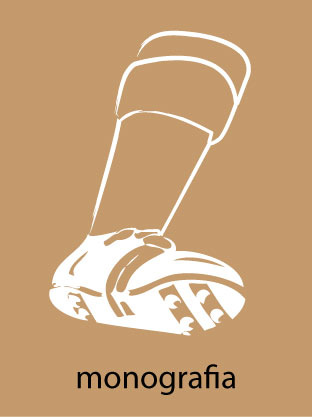Esta pesquisa tem como objetivo investigar se o Operário Ferroviário Esporte Clube possui elementos que possam caracterizá-lo como patrimônio cultural da cidade de Ponta Grossa-PR. O trabalho embasa-se na nova abordagem cultural em Geografia que procura analisar o espaço a partir da dimensão cultural e as espacialidades geradas por tal dimensão. As premissas teóricas que alertam a importância de se defender o clube de futebol como patrimônio cultural são: 1) O patrimônio cultural é de fundamental importância para a ociedade; 2) A ferrovia é um patrimônio cultural do Brasil e dos Campos Gerais e possui nela, inúmeros patrimônios culturais, entre eles o Operário, objeto de pesquisa deste trabalho; 3) O futebol é um elemento central da cultura brasileira, transcendendo sua qualidade esportiva e tornando-se um elemento sociocultural espacial. Para investigar se o Operário é um patrimônio cultural, foram utilizados diversos instrumentos de coletas de dados: Entrevista semi-estruturada aplicada a grupo focal; Aplicação de questionário a torcedores e simpatizantes do Operário; Coleta de depoimentos e opiniões em sites de relacionamentos sociais e web sites em geral; Pesquisa bibliográfica. A pesquisa constatou que o Operário não é apenas um clube de futebol, pois possui características peculiares, sendo emerso num simbolismo profundo e mistificador. Portanto, o Operário é um patrimônio cultural por quatro motivos básicos: a) O Operário é uma construção histórica e simbólica, estando presente no cotidiano do cidadão pontagrossense por quase cem anos. Com isso, ele acumulou representatividade perante distintos grupos sociais; b) O Operário é um patrimônio cultural por ser uma herança das ferrovias de Ponta Grossa, e por possuir diversos elementos que lembram o trabalhador ferroviário e as ferrovias em geral; c) O Operário é um patrimônio cultural por possuir diversas manifestações culturais, que podem ser denominadas patrimônios culturais do próprio Operário. São torcedores folclóricos, músicas características cantadas nos estádios, lendas, narrativas peculiares, etc.; d) Atualmente esse clube de futebol é de fundamental importância para o cidadão pontagrossense, que se sente representado por ele no Brasil. Desta maneira, o Operário gera uma espacialidade própria, o espaço de representação do Operário, local onde as pessoas buscam se transformar em “pessoas totais”. Estes motivos atestam à importância de se valorizar o Operário como um patrimônio cultural em vários sentidos. Assim, o Operário merece ser valorizado, preservado e incentivado por sua continuidade, proporcionando qualidade de vida e possibilitando a identidade do cidadão com a cidade de Ponta Grossa. Devemos superar a visão de que o futebol é o ópio de povo, e atentar para ações e políticas públicas que invistam no esporte e na cultura, dimensões essenciais da existência humana.
Palavras-chaves: Geografia Cultural, Patrimônio Cultural Intangível, Futebol, Memória, Cidade.


